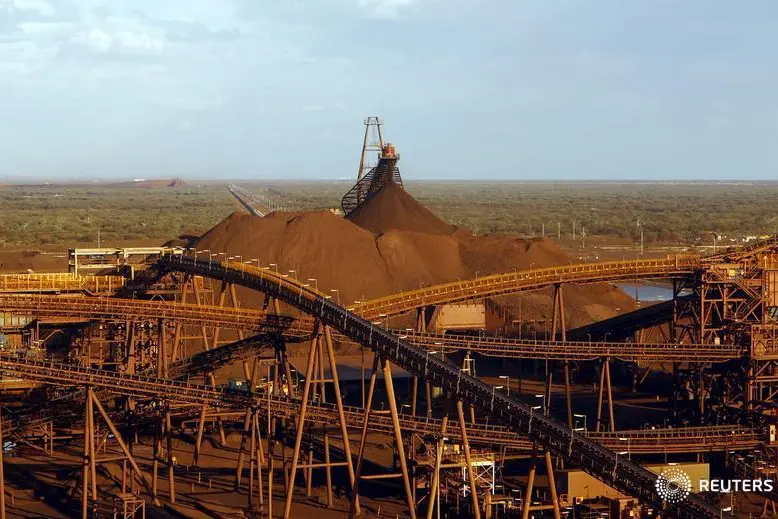PHOTO
By Hamid Ould Ahmed
ALGIERS, March 10 (Reuters) - Algeria is in talks with China to exploit one of the North African country's largest mining deposits as the OPEC member tries to diversify its economy away from oil and gas, an industry and mines ministry official said on Thursday.
Negotiations started last month in Algiers with officials from China Civil Engineering Construction Corporation (CCECC) for a partnership in the Gara Djebilet iron deposit in the southwestern province of Tindouf, the official told Reuters.
Algeria relies heavily on oil and gas to finance its budget and pay for a growing imports bill. The drop in global crude oil prices almost halved its energy earnings for 2015, forcing the government to cut spending and look to diversify its economy.
The government has delayed the Gara Djebilet project several times, citing "technical difficulties".
"This is the first time we talk with a foreign partner about the project," the official said. "Economic feasibility and technical studies were successful."
Officials have estimated reserves in the Gara Djebilet deposit at around 2.5 billion tonnes of iron ore.
Talks with China also includes the construction of a 950-km railway line linking Tindouf to the Bechar province to help transport extracted iron to steel plants.
Steel imports cost Algeria around $10 billion a year due to growing domestic demand from a drive to modernise infrastructures and build thousands of subsidized housing units as part of the government's social spending.
Algeria imports most of the goods it needs due to insufficient domestic production caused by a lack of investment in its non-energy industries, including mining.
The industry and mines ministry official gave no details on how the Gara Djebilet project would be financed.
Officials have said Algeria would turn to China to fund several projects including a $3.2 billion port, the first time it has sought external financing in more than a decade as it looks for alternative funding because of the oil price drop.
(Reporting by Hamid Ould Ahmed; Editing by Mark Potter) ((hamid.ouldahmed@thomsonreuters.com;))
ALGIERS, March 10 (Reuters) - Algeria is in talks with China to exploit one of the North African country's largest mining deposits as the OPEC member tries to diversify its economy away from oil and gas, an industry and mines ministry official said on Thursday.
Negotiations started last month in Algiers with officials from China Civil Engineering Construction Corporation (CCECC) for a partnership in the Gara Djebilet iron deposit in the southwestern province of Tindouf, the official told Reuters.
Algeria relies heavily on oil and gas to finance its budget and pay for a growing imports bill. The drop in global crude oil prices almost halved its energy earnings for 2015, forcing the government to cut spending and look to diversify its economy.
The government has delayed the Gara Djebilet project several times, citing "technical difficulties".
"This is the first time we talk with a foreign partner about the project," the official said. "Economic feasibility and technical studies were successful."
Officials have estimated reserves in the Gara Djebilet deposit at around 2.5 billion tonnes of iron ore.
Talks with China also includes the construction of a 950-km railway line linking Tindouf to the Bechar province to help transport extracted iron to steel plants.
Steel imports cost Algeria around $10 billion a year due to growing domestic demand from a drive to modernise infrastructures and build thousands of subsidized housing units as part of the government's social spending.
Algeria imports most of the goods it needs due to insufficient domestic production caused by a lack of investment in its non-energy industries, including mining.
The industry and mines ministry official gave no details on how the Gara Djebilet project would be financed.
Officials have said Algeria would turn to China to fund several projects including a $3.2 billion port, the first time it has sought external financing in more than a decade as it looks for alternative funding because of the oil price drop.
(Reporting by Hamid Ould Ahmed; Editing by Mark Potter) ((hamid.ouldahmed@thomsonreuters.com;))





















